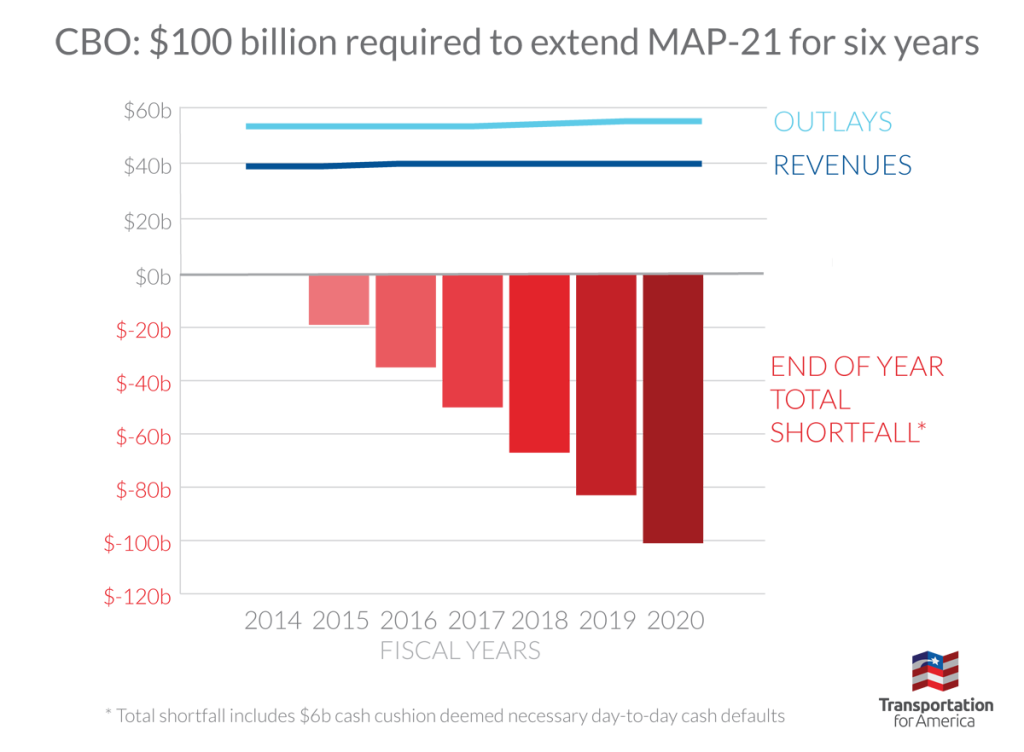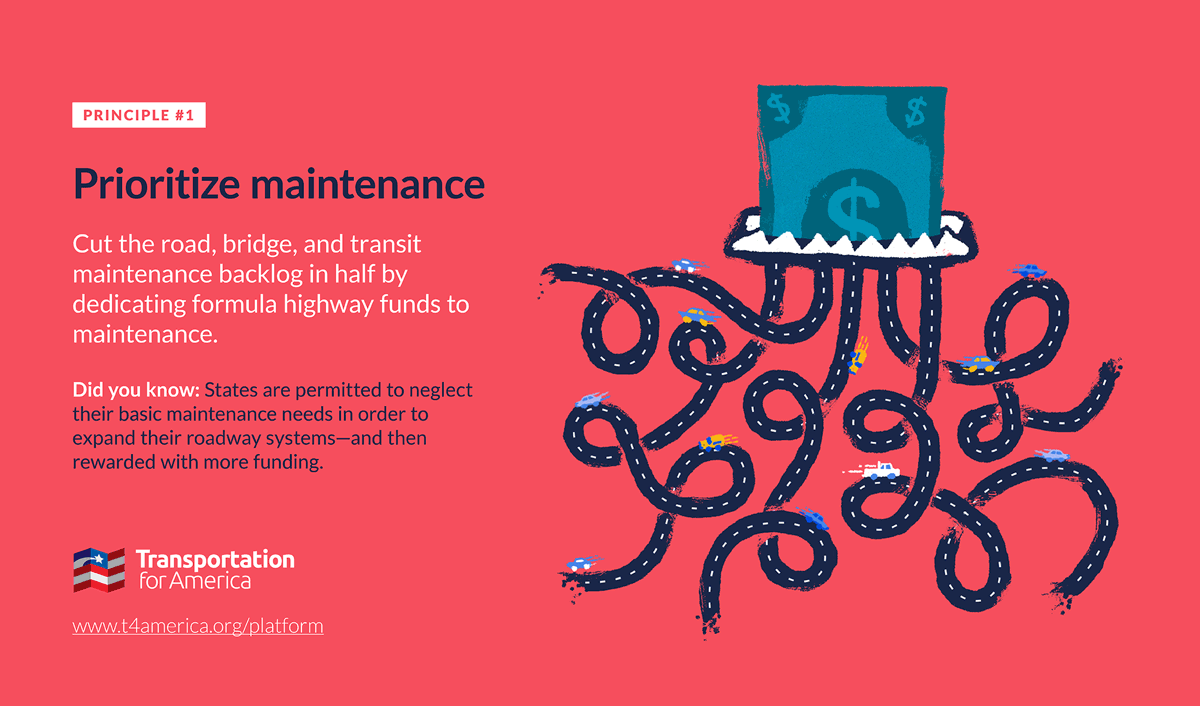CBO: Highway Trust Fund hole even deeper than expected
New revenue projections for the Highway Trust Fund released this week from the Congressional Budget Office (CBO) show that, not only is the nation’s transportation fund going in the red sooner than expected, but the gap to maintain promised funding levels has increased by about $5 billion.
On Tuesday, CBO released its biannual projections of the Highway Trust Fund as part of their much larger “Budget and Economic Outlook: 2014 to 2024.”
The gloomy news from the CBO report is twofold: (1) The “transportation fiscal cliff” is likely to come before the end of September; and (2) fully funding MAP-21 for another year after it expires this September is projected to now require $19 billion — $5 billion more than originally thought.
Though the news from CBO is worse than many in DC expected, the bottom line hasn’t changed: If Congress doesn’t act sometime in the next eight months, nearly all of the federal transportation program will be halted in fiscal year 2015.
Specifically, the CBO report estimates the Highway Account of the Trust Fund will run out of cash to pay for day-to-day operations before the expiration of MAP-21 on September 30th. This is due in part to the fact that the Federal Highway Administration (FHWA) is supposed to reimburse states every business day, but gas tax receipts are deposited in the Trust Fund only twice a month. The uncertainty between gas tax receipts and cash outlays will require FHWA to slow payments to states and/or pay smaller sums should Congress not address the “transportation fiscal cliff” in a timely manner.
These forced actions by FHWA will result in states and local communities stopping investments in transportation projects that are critical to their long-term economic development. As a result, communities across the country that are raising their own taxes and hoping for a strong federal partner to support their efforts might have to shelve their ambitious plans.
Looking past the expiration of MAP-21 this September and into the future, the CBO report also gives us a sobering picture of just how much additional transportation revenue is needed to move forward. To fund a six-year authorization bill at the same spending levels as MAP-21, the trust fund needs an additional $100 billion in tax receipts or, however unlikely, transfers from the general fund for the fiscal period from 2015 to 2020. To fund a two-year bill similar to MAP-21 would require an additional $35 billion more than the trust fund currently brings in.
This picture won’t magically get any better, either. Inflation marches on and cars will continue using less and less gas. The roughly $39 billion of incoming gas tax revenues of today aren’t projected to grow a dime ten years from now, and many intelligent people think this projection could be too rosy, considering that the previously mentioned shifts in fuel efficiency and driving habits are expected to persist.
We absolutely must invest more money in America’s transportation system, and Transportation for America’s alliance of elected, business and civic leaders are working to move Congress toward timely action on this vital issue. Please read Transportation for America’s plan for an increase in federal transportation funding that rewards smart, locally driven transportation projects and guarantees local communities get the money they need to fix an aging system while also building the new infrastructure their economies depend on.




















